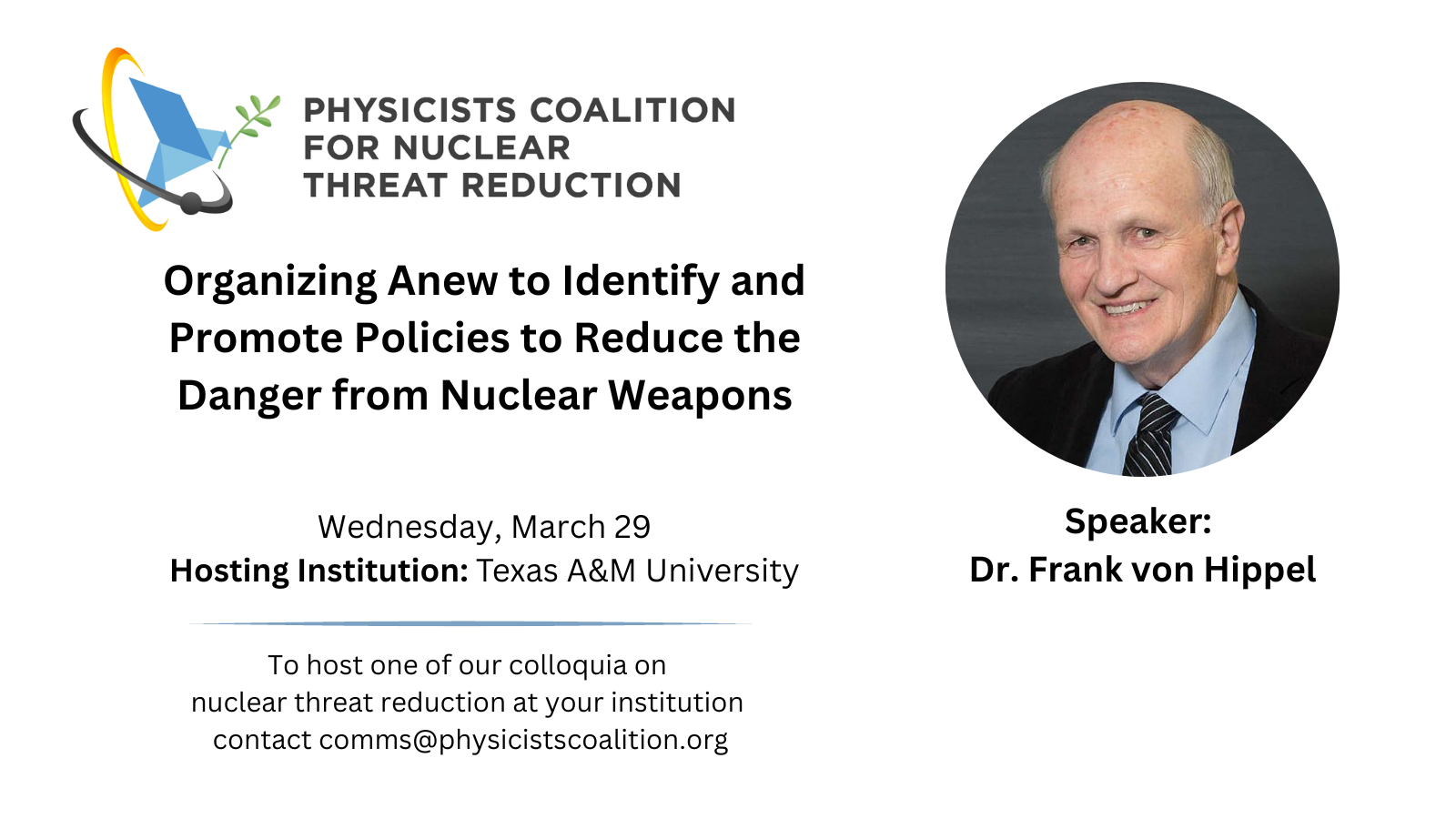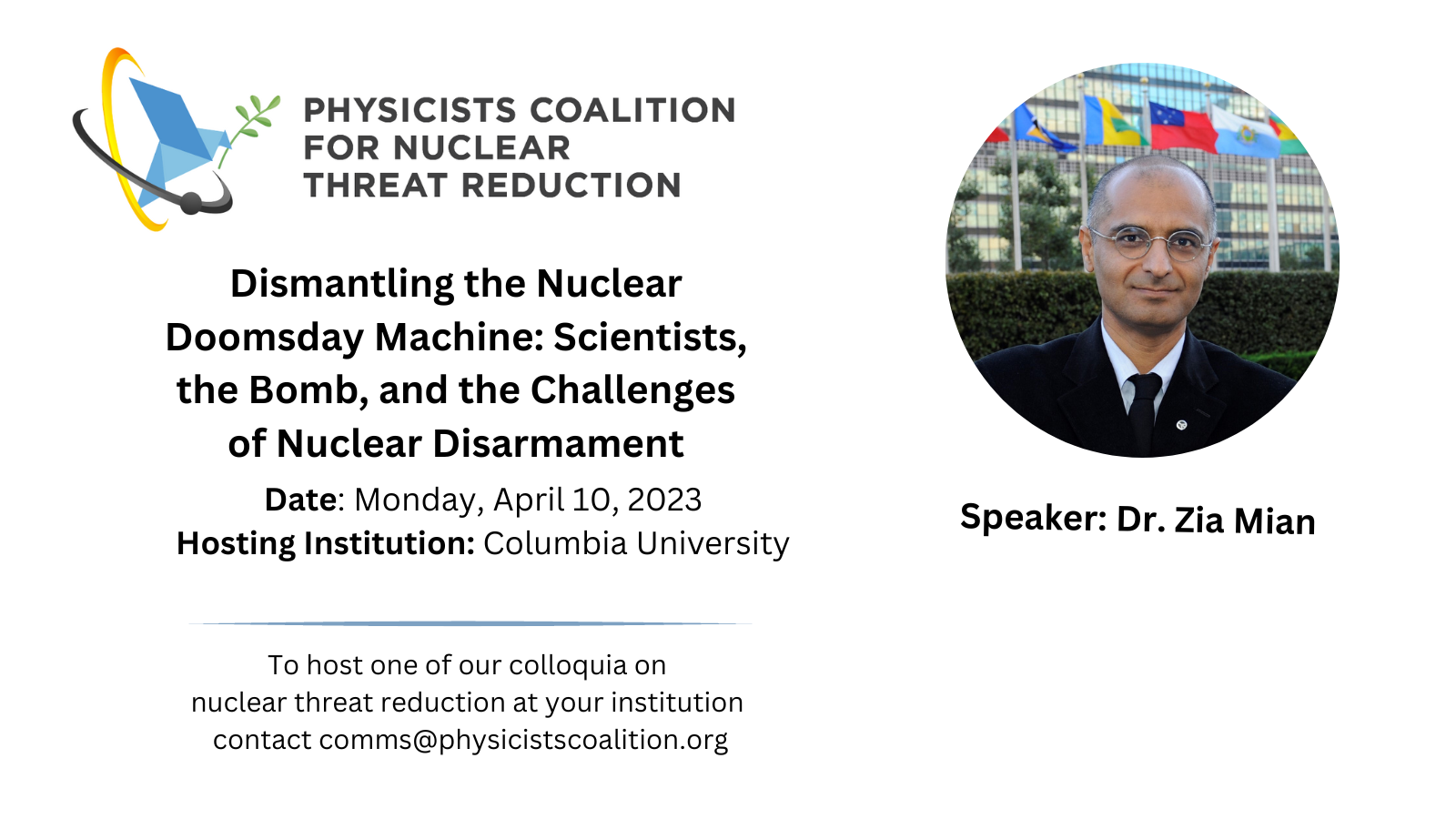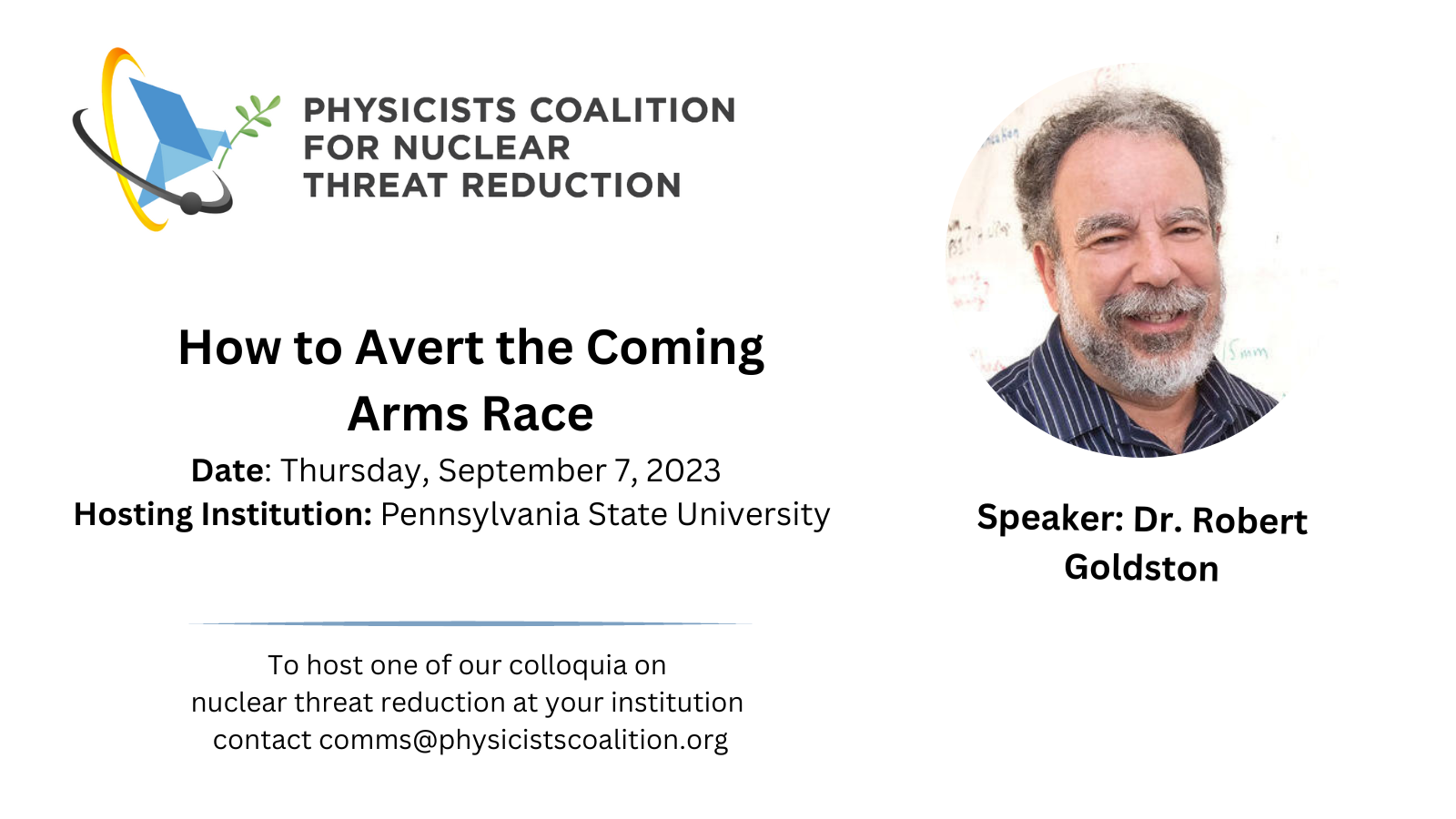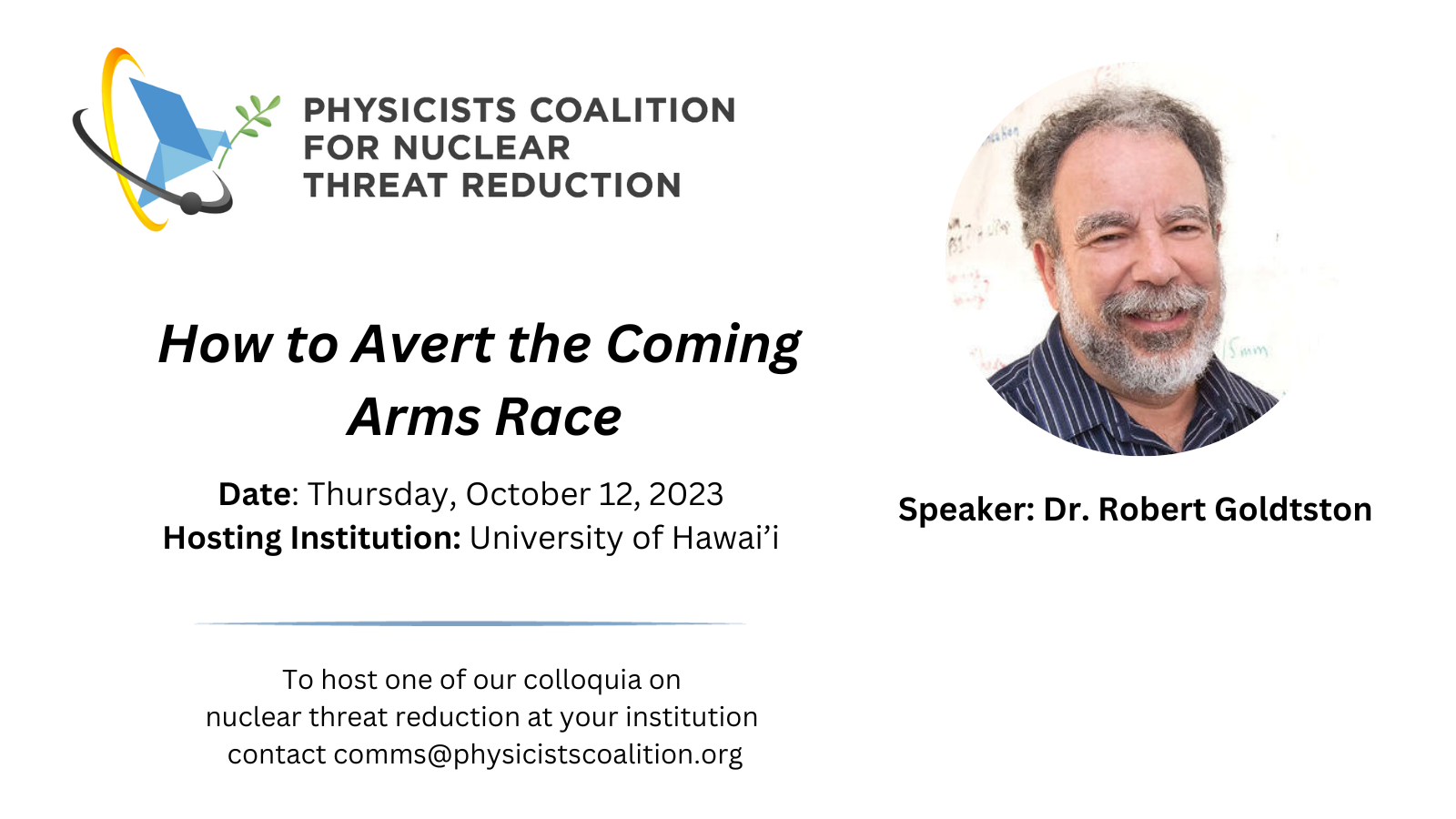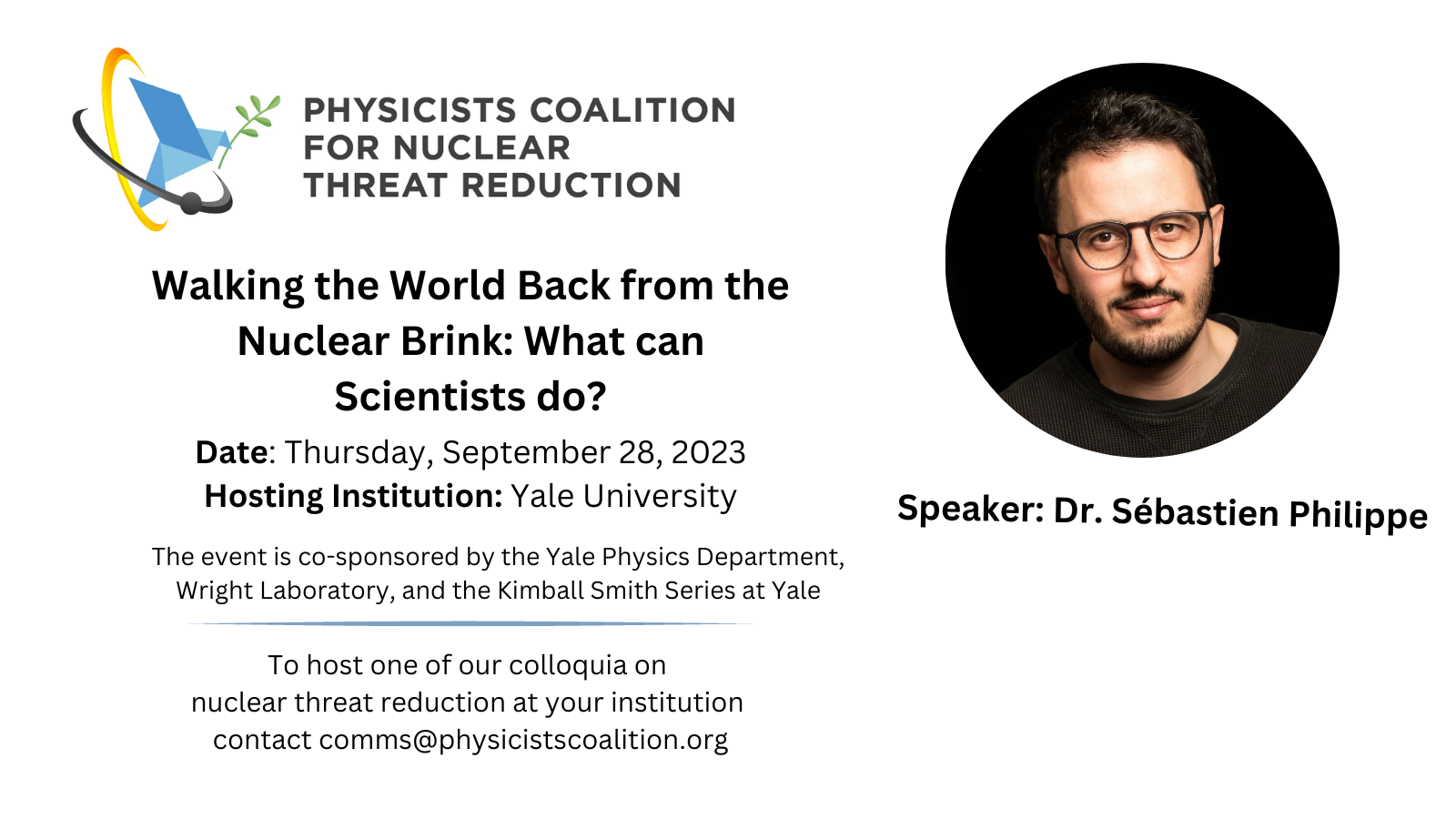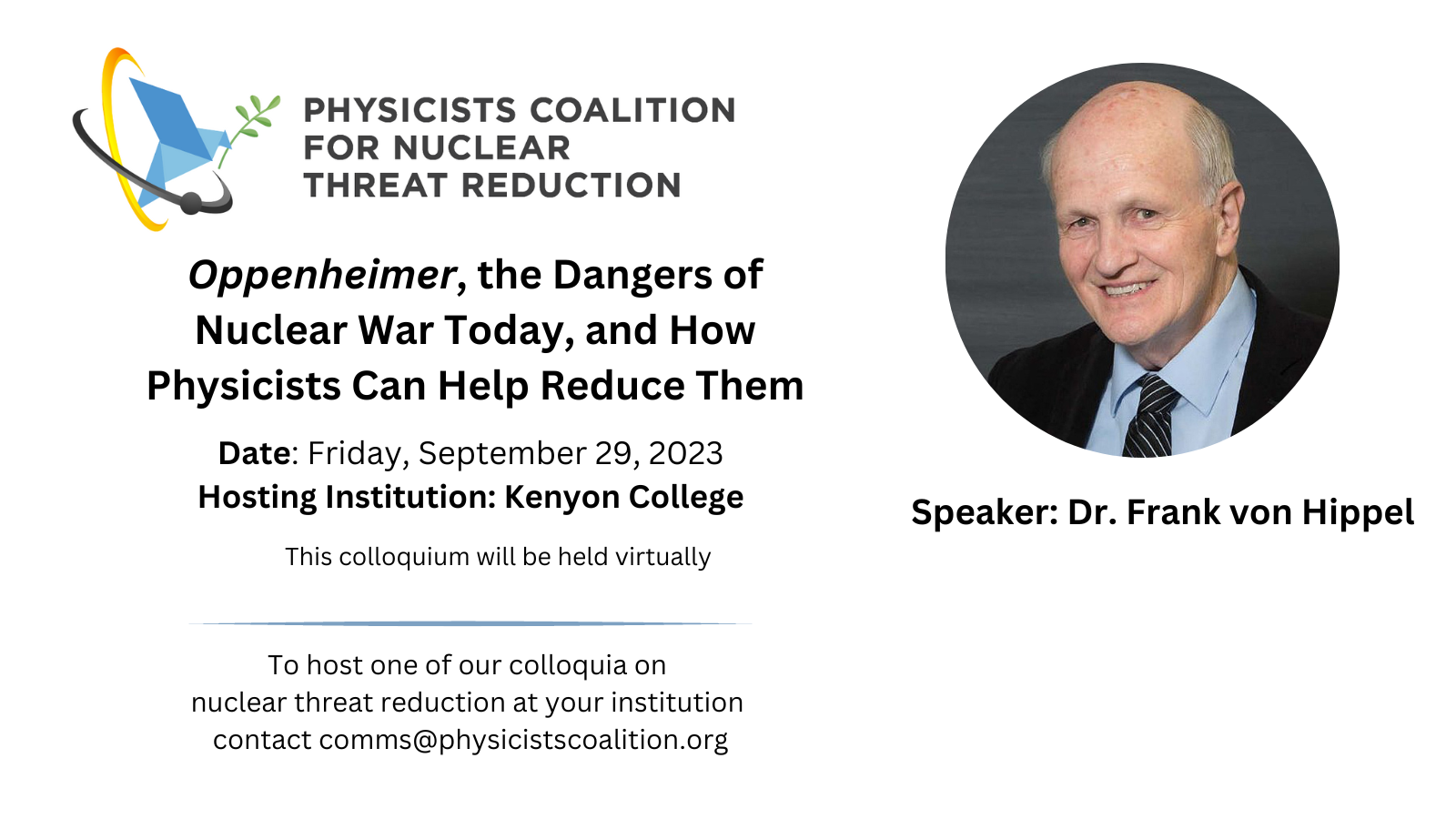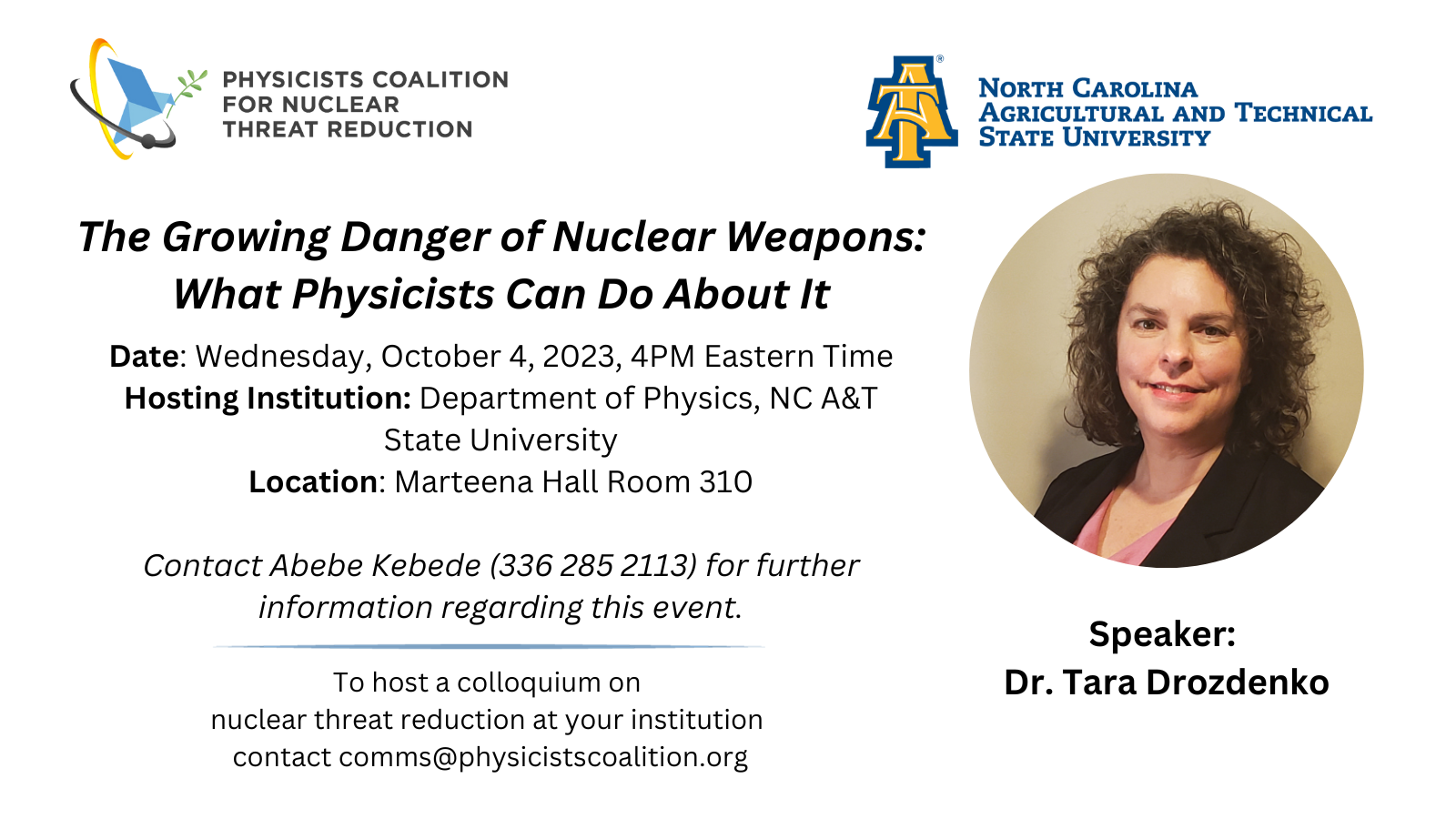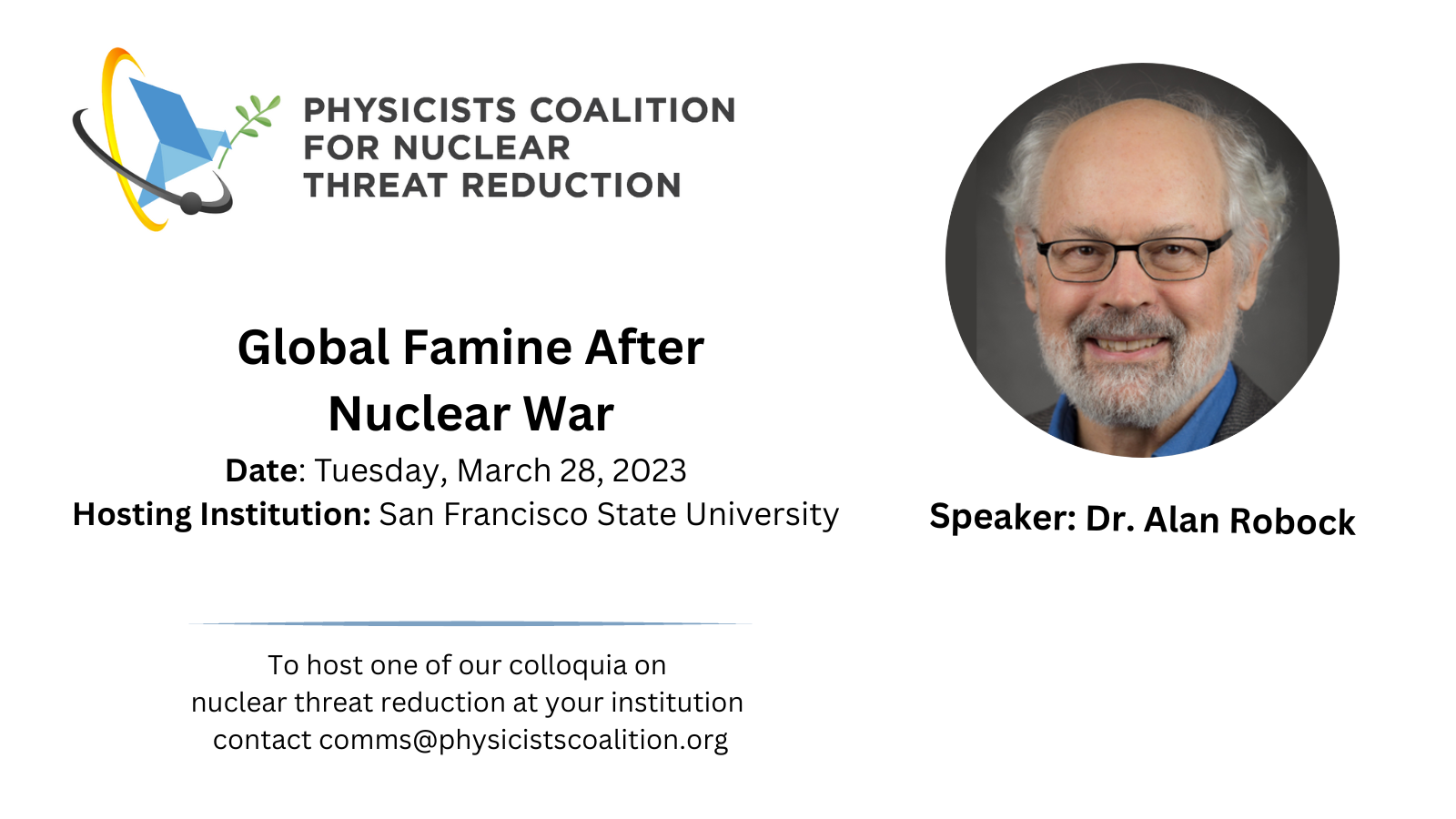
San Francisco State University- Global Famine after Nuclear War
Colloquium Abstract A nuclear war could inject so much smoke from the resulting fires into the stratosphere that the resulting climate change would be unprecedented in recorded human history. Our climate model simulations find that the smoke would absorb sunlight, making it dark, cold, and dry at Earth’s surface and produce global-scale ozone depletion, with enhanced […]

